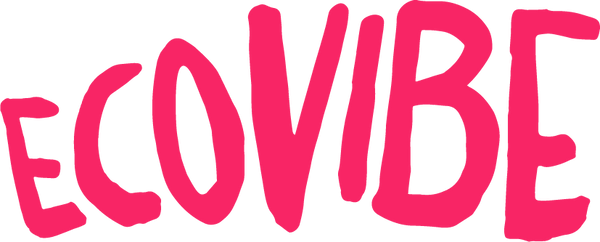When shopping sustainably it can be hard to untangle which eco-labels are actually important and what they actually mean for the planet. So we’ve picked five that we feel you should know about.
Do you know your plastic-free from your non-toxic? Or whether you should be looking out for UK made or low carbon when you want to shop sustainably? It’s confusing, right? Let’s help you go green by explaining what it all means!
We’ll take you through, vegan and cruelty-free, plastic-free, UK made, low-carbon, and non-toxic, which we feel are five of the most important labels.


Vegan and cruelty-free
Yep, ok, we realise these are two labels, but there are a lot of crossovers. Vegan means that something doesn’t contain any animal-derived products and cruelty-free means that nothing has been tested on animals.
Of course, by shopping vegan and cruelty-free you’re protecting animals from being used for testing in labs or used to create a product but you’re also normally using something that’s better for you! Often, vegan and cruelty-free products use a lot fewer chemicals (super important if this is something you’re putting on your skin!) It’s better for the planet too, as the processes produce less harmful waste and mean fewer chemicals go into our air and our waterways.
When buying products lookout for the vegan sunflower symbol and the leaping bunny indicating cruelty-free. Not sure? It’s worth noting that in China, every product sold must be tested on animals so if you’re looking to increase the cruelty-free products you use, avoid products manufactured in China.

Plastic-free
Pesky plastic gets everywhere, doesn’t it? By labelling something plastic-free it means the product and its packaging are completely free from plastic. This sometimes means plastic is switched for something completely different like paper, cardboard, metal, or glass (which are often easier to recycle) or using a naturally derived material that looks and feels pretty similar to what you’re used to labelling as plastic.
Huski Home uses rice husks, a by-product from agriculture, to create travel cups and lunchboxes which biodegrade at the end of their lifespan.
What makes plastic so pesky? There are 40,000 different types of plastic which all require different processes to be recycled. This means that sadly, not a lot of the plastic we throw away gets recycled. Luckily though, there are some great plastic-free alternatives!

UK made
We love shopping locally here at EcoVibe. It pumps money into our economy and cuts down the air and shipping miles of the products we buy.
Unfortunately sometimes a UK made label can actually mean just one element of a product is made in the UK, or that it’s just packaged here. This is why we will never label something unless it actually is made here in the UK - we see you sneaky labels!
Not buying something from EcoVibe? Search out companies that are super transparent regarding their supply chains and manufacturing methods. If they’re not hiding anything, it’s because they’ve got nothing to hide!
Similarly, it’s not always possible to shop UK made. Some products aren’t grown or manufactured here. The next best thing is to seek out things that are created in Europe, as they’ll still have a lower carbon footprint from the factory to your home than they would if they were from the other side of the world!

Low-carbon
It’s always important to remember that carbon isn’t all bad. Carbon is a vital element to life on earth, it’s our chemical backbone. It helps reduce the earth’s temperature, makes the food that sustains us, and provides us with fuel.
Remember learning about photosynthesis at school? Where plants turn carbon into oxygen? Ring a bell?
We hear your furrowed brows doing some serious work as you read this. “Hang on EcoVibe, aren’t we meant to be cutting down our carbon?”. Yep, we are. And that’s because our industries, our lifestyles, and our manufacturing processes produce too much carbon and it can’t be handled - we don’t have enough plant life and our ecosystems don’t have enough room to store and process the amount we produce.
Low-carbon will often mean products haven’t travelled so far or that their manufacturing processes have a low carbon intensity. Both of these are great.

Non-toxic
Non-toxic describes a material that does not contain a poisonous ingredient. This means that if they’re consumed, inhaled, or absorbed by the skin they will not cause personal illness or injury to humans.
A lot of what we use to clean our home tends to contain a lot of harmful ingredients. They’re not good for you and can either release toxins into our air or if flushed down the drain they’ll pollute our waterways.
This can damage our ozone layer, can kill ecosystems, and isn’t very pleasant all around. This is a really important one for our own safety and something we should be on the lookout for.
It’s really hard to know where to start with this one and sometimes it isn't well labelled. So look out for ingredients such as phthalates, parabens, lead acetate, formaldehyde, petroleum and coal tar.
Feeling a bit clearer about eco-labels and what they all mean? We’ve taken you through the five you should be looking out for when you’re trying to shop sustainably. It’s important to note that some products tick all five of these boxes but they’re rare finds. That’s why we always try and make it as clear as possible on all of our labellings throughout our site and on the products themselves.
Ever got a question for us? Drop us a message, add a comment to this blog, or reach out to us on social media and we’d be happy to help!

